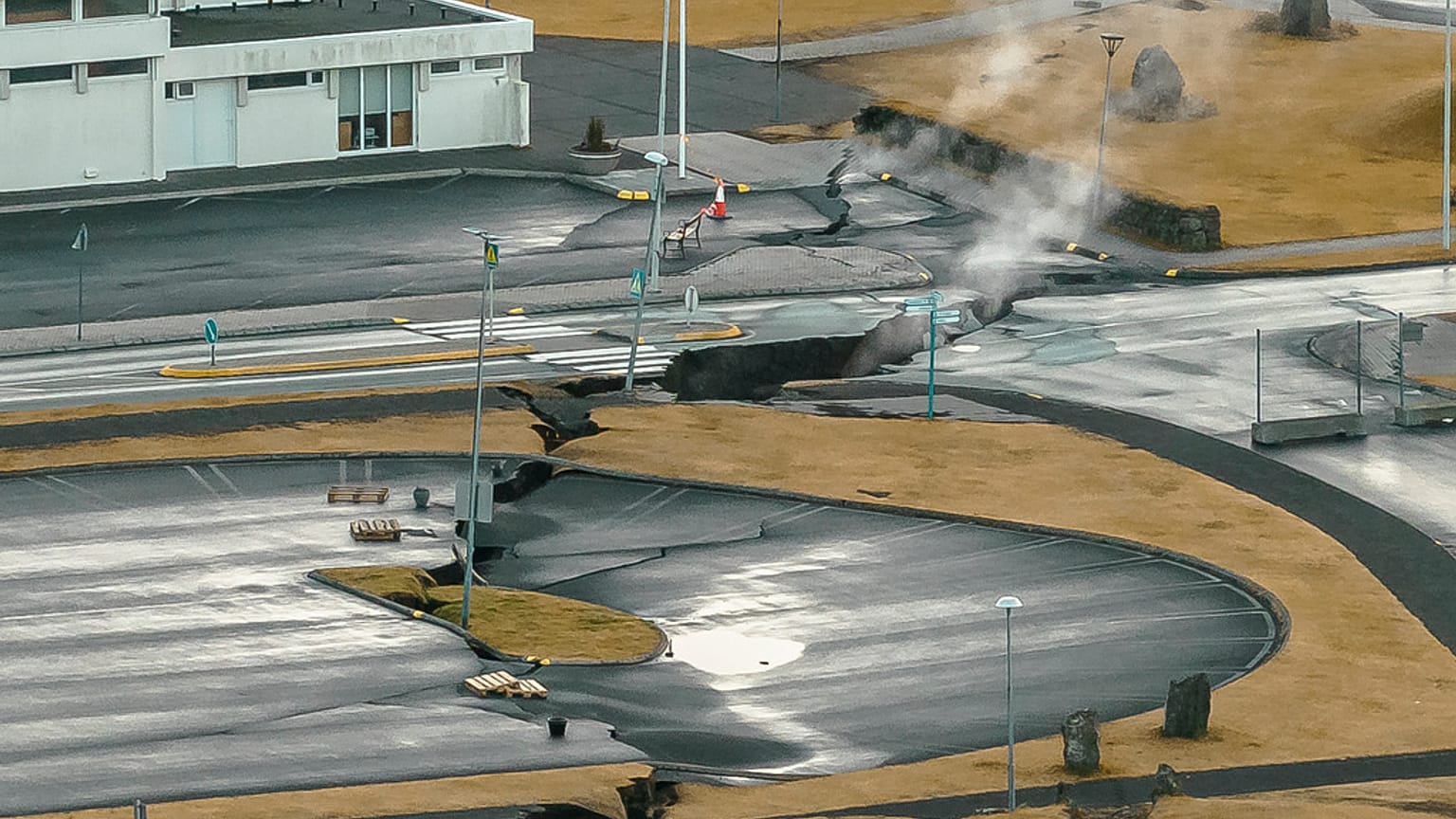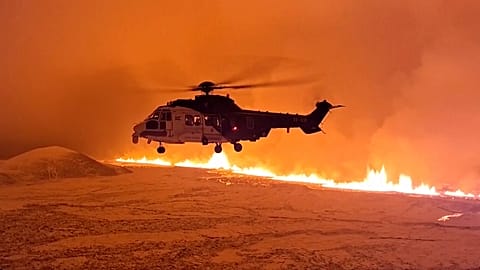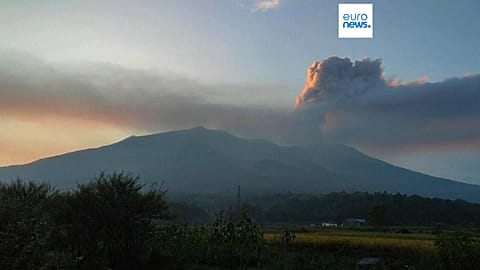As the volcano in Iceland threatens to erupt any minute now, some social media users are falsely claiming the fumes from the natural disaster will generate more CO2 than all of the cars and airplanes on earth.
In the past few weeks, Icelanders have been on the edge as an expected volcanic eruption threatens the coastal community of Grindavik, home to more than 3,000 people.
Meanwhile, on the social media platform X, formerly known as Twitter, certain accounts are claiming the impending eruption will burst more CO2 into the atmosphere than every man-made emission this past decade.
"The Icelandic volcano is about to stick more CO2 into the atmosphere than every man-made emission for the last 10 years," tweeted one account.
"Yet your government will tell you that you are the problem for taking your kids to school with your gasoline car," replied another user, claiming climate change policies are a scam.
Human activity emits 40 to 100 times more CO2 yearly
Indeed, volcanos are capable of spewing colossal billowing ash clouds and toxic fumes, however, they’re nothing compared to human-induced greenhouse gas emissions.
According to a 2019 peer-reviewed study by the Deep Carbon Observatory program in Washinton, DC, human activity emits approximately 40 to 100 times more CO2 each year than all the volcanoes on our planet.
But do volcanoes still have an impact on global emissions?
Yes, volcanic activity that lasts several days like the 2010 volcanic eruption in Iceland which grounded air traffic for almost one month in Europe – can temporarily affect the climate.
Volcanic gases like sulfur dioxide can cause global cooling, while volcanic carbon dioxide, a greenhouse gas, has the potential to promote global warming.
However, it doesn’t have as much significant long-term impact as man-made emissions, according to the IPCC.
The 1980 eruption of Mount St. Helens in the US ejected approximately 10 million tons of CO2 into the atmosphere in only 9 hours.
However, it currently takes us humans only 2.5 hours to put out the same amount of CO2, according to NASA.
Moreover, it would take 3,500 of those eruptions to match humankind’s carbon dioxide production from 2010 alone.
While large explosive eruptions like this are rare, humanity's emissions never stop and are increasing every year.
According to a study by the United States Geological Survey, all volcanoes release less than one percent of the carbon dioxide currently emitted by human activities.


















